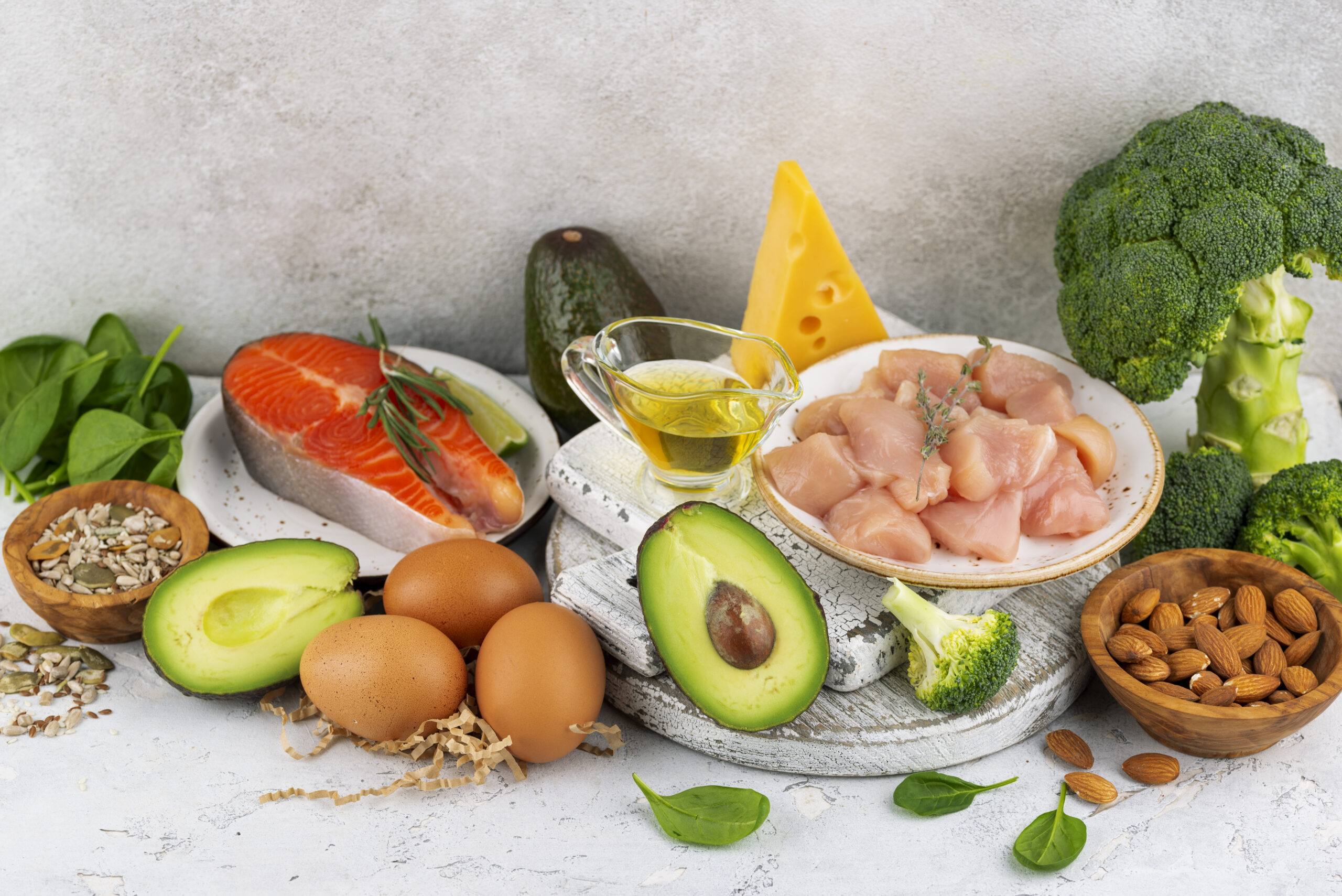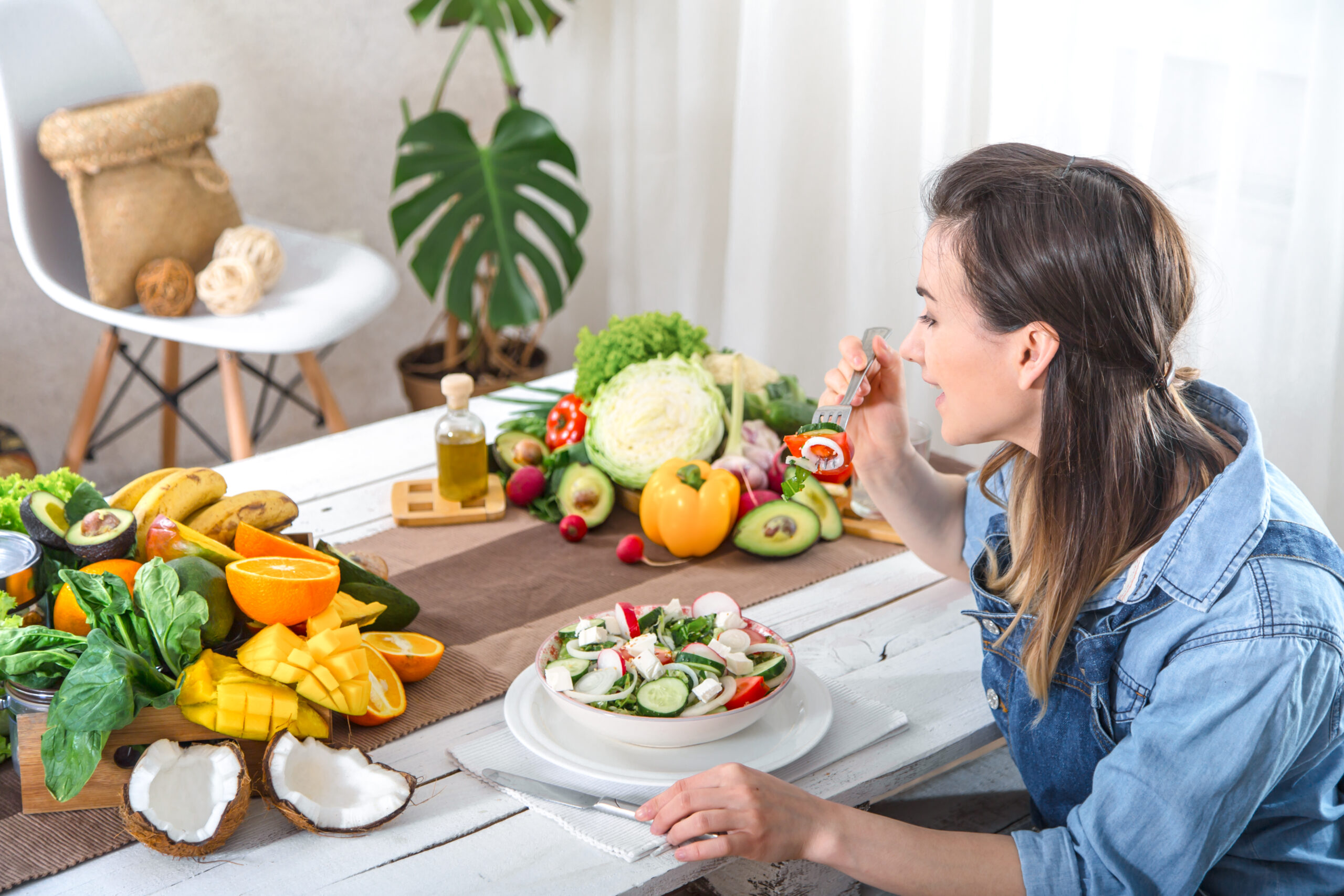7 Biotin-Rich Foods For Healthy Skin
In the never-ending quest for glowing, healthy skin, many of us explore skincare products, elaborate beauty routines, and high-tech treatments.
While these have their place, we often overlook one of the most powerful tools for skin health: nutrition. More specifically, there’s one vital nutrient that plays a starring role in maintaining your skin’s glow — Biotin.
Also known as Vitamin B7, biotin is a water-soluble B-complex vitamin that’s crucial for maintaining healthy skin, hair, and nails. Sometimes dubbed the “beauty vitamin,” biotin is responsible for metabolizing fats, carbohydrates, and amino acids — the building blocks for vibrant skin cells.
If you’re aiming to enhance your skin from within, ensuring you get enough biotin in your diet can be a game changer.
In this blog post, we dive into 7 biotin-rich foods for healthy skin, backed by nutritional science, and explore how they can become powerful allies in your skincare regimen.

What is Biotin and Why Is It Important for Skin?
Biotin serves as a coenzyme involved in the metabolism of fatty acids, glucose, and amino acids. This metabolic activity is essential for energy production and the proper function of numerous physiological processes — including the maintenance of healthy skin.
When your body lacks biotin, your skin might be one of the first places to show it. Common symptoms of biotin deficiency include:
- Dry, flaky, or red skin
- Rashes (especially around the eyes, nose, and mouth)
- Cracking at the corners of the mouth
- Itchy scalp or dandruff
- Premature aging or dull skin tone
While true biotin deficiency is rare — as many foods contain small amounts of it and our gut bacteria also help synthesize it — low or suboptimal intake may still impair your skin’s natural barrier and renewal process.
Consuming foods rich in biotin can support:
- Collagen production
- Cell regeneration
- Moisture retention
- Skin elasticity
- Acne prevention
Now, let’s dive into the top 7 biotin-rich foods you should be eating regularly to promote radiant, healthy skin from the inside out.
Egg Yolks – A Skin-Boosting Powerhouse
Biotin Content: ~10 mcg per cooked egg yolk
Egg yolks are one of the richest natural sources of biotin. They’re also packed with other skin-friendly nutrients such as vitamin A, zinc, and essential fatty acids. These nutrients work together to help maintain skin elasticity, fight inflammation, and support the regeneration of new skin cells.
How They Help Your Skin:
- Biotin in egg yolks supports the fatty acid synthesis necessary for hydrated skin.
- Vitamin A helps in skin cell turnover and can reduce acne.
- The lecithin content in yolks helps retain skin moisture.
Tip: To retain maximum biotin, it’s best to cook eggs lightly, such as soft boiling or poaching. Avoid eating raw egg whites as they contain avidin, a protein that binds to biotin and prevents its absorption.
Nuts and Seeds – Tiny Packages of Skin Gold
Biotin Content:
- Sunflower seeds: ~2.6 mcg per ¼ cup
- Almonds: ~1.5 mcg per ¼ cup
- Walnuts: ~5 mcg per ½ cup
Nuts and seeds are more than just healthy snacks; they’re dense with biotin, antioxidants, and healthy fats. These ingredients are a potent recipe for skin nourishment and protection.
How They Help Your Skin:
- The vitamin E in almonds acts as a powerful antioxidant that protects the skin from oxidative stress and UV damage.
- The omega-3s in walnuts help reduce inflammation and soothe irritated skin.
- Zinc and selenium in seeds aid in collagen production and wound healing.
Tip: Soaking or roasting nuts slightly can improve nutrient absorption. Include a mix of seeds and nuts in salads, smoothies, or as toppings for yogurt.
Sweet Potatoes – The Complex Carb with a Skin Glow Bonus
Biotin Content: ~2.4 mcg per ½ cup (cooked)
Sweet potatoes are known for their high beta-carotene content (which the body converts to vitamin A), but they’re also a decent source of biotin. These root vegetables offer a complex carbohydrate source that fuels your body while helping your skin stay clear and glowing.
How They Help Your Skin:
- Biotin assists in the formation of fatty acids needed for glowing skin.
- Beta-carotene acts as a natural sunblock and gives skin a warm, even tone.
- Their anti-inflammatory properties help calm irritated skin.
Tip: Bake or steam sweet potatoes with the skin on to preserve the biotin and fiber content.
Salmon – The Omega-Biotin Combo
Biotin Content: ~5 mcg per 3-ounce cooked portion
Fatty fish like salmon are loaded with essential fatty acids (especially omega-3s) and are a moderately good source of biotin. This nutrient combination is ideal for skin health, supporting hydration, elasticity, and anti-inflammatory action.
How It Helps Your Skin:
- Omega-3s help maintain your skin’s lipid barrier, locking in moisture.
- Biotin promotes skin cell regeneration and reduces scaling or flakiness.
- Selenium and astaxanthin (a powerful antioxidant in salmon) protect against environmental damage.
Tip: Opt for wild-caught salmon when possible, as it tends to be higher in nutrients than farm-raised varieties. Grilled, baked, or smoked options can help preserve its nutrient density.
Avocados – The Creamy Biotin Bomb
Biotin Content: ~2–6 mcg per whole avocado
Avocados are a nutrient-dense fruit rich in healthy fats, fiber, and vitamins — including biotin. They’re often considered a superfood for skin because they support moisture retention, collagen synthesis, and protection against oxidative stress.
How They Help Your Skin:
- High levels of monounsaturated fats improve skin elasticity and softness.
- Biotin works at the cellular level to strengthen skin and improve its texture.
- Vitamin E and C in avocados boost collagen production and repair UV-induced skin damage.
Tip: Use mashed avocado in sandwiches or blend into smoothies. You can also apply avocado topically as a hydrating face mask for a dual benefit.
Bananas – Biotin Meets Skin-Soothing Minerals
Biotin Content: ~0.2–0.4 mcg per medium banana
While not as high in biotin as others on this list, bananas offer a biotin boost along with other skin-friendly nutrients like potassium, magnesium, and vitamin B6. They’re easy to incorporate into daily meals and snacks, making them a convenient option for supporting skin health.
How They Help Your Skin:
- Potassium helps balance skin moisture levels and prevents dryness.
- Biotin supports a smooth and healthy skin appearance.
- Magnesium reduces inflammation and supports the repair of damaged skin tissue.
Tip: Use ripe bananas in oatmeal, smoothies, or even DIY face masks for soft, nourished skin.
Liver (Beef or Chicken) – The Biotin Supernova
Biotin Content:
- Cooked beef liver: ~30 mcg per 3 ounces
- Cooked chicken liver: ~170 mcg per 3 ounces
Though not for everyone, organ meats — especially liver — are among the most concentrated sources of biotin you can consume. If your diet allows for it, incorporating liver once a week can give your skin a major boost.
How It Helps Your Skin:
- High biotin content improves skin hydration, elasticity, and reduces flakiness.
- Rich in iron, which supports oxygen transport to skin cells and promotes a healthy complexion.
- Contains retinol (preformed vitamin A), which accelerates skin renewal.
Tip: Try incorporating liver into meals using pâtés, stews, or meat blends. Pair it with vitamin C-rich foods (like bell peppers or citrus) to enhance nutrient absorption.

Bonus Tip: Biotin Supplements — Are They Necessary?
While food sources should always be your first choice, supplements can be helpful in certain situations — particularly if you’re experiencing symptoms of deficiency, are pregnant, or have absorption issues.
However, taking extremely high doses of biotin (like some 5,000–10,000 mcg supplements) is not usually necessary unless prescribed by a healthcare professional. Too much supplemental biotin can interfere with lab tests and potentially lead to imbalances in other B vitamins.
Always aim to get your nutrients from a balanced, varied diet first, and consult with a physician or registered dietitian before starting any new supplement routine.
Final Thoughts: Nourish Your Skin From Within
Healthy skin isn’t just about what you apply on the outside — it’s deeply connected to how you nourish your body from the inside.
By incorporating more biotin-rich foods into your daily meals, you provide your skin with the essential building blocks it needs to stay soft, hydrated, youthful, and resilient.
To recap, here are the top 7 biotin-rich foods for healthy skin:
- Egg Yolks
- Nuts and Seeds
- Sweet Potatoes
- Salmon
- Avocados
- Bananas
- Liver
Each of these foods offers more than just biotin — they’re filled with other nutrients that synergistically enhance your skin health. So the next time you’re planning your grocery list or prepping meals, give your skin a little love by including these biotin-boosting options.
Glowing, healthy skin is more than skin-deep — it starts on your plate.
References
- https://ods.od.nih.gov/factsheets/Biotin-Consumer/
- https://www.hsph.harvard.edu/nutritionsource/biotin/
- https://lpi.oregonstate.edu/mic/vitamins/biotin
- https://fdc.nal.usda.gov/
- https://www.ncbi.nlm.nih.gov/pmc/articles/PMC6715131/
- https://www.healthline.com/nutrition/13-foods-for-healthy-skin
.